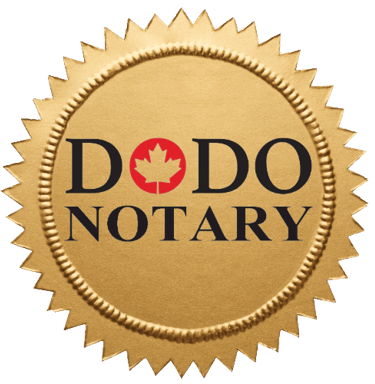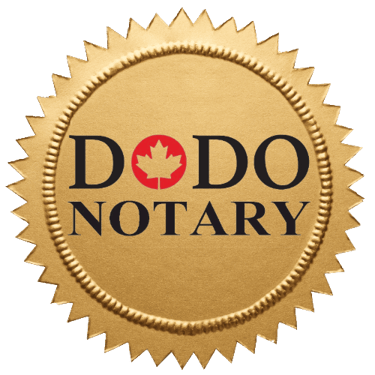How to Discharge a Mortgage or Loan in Ontario – Do You Need a Notary Public?
This process requires specific documents, and in many cases, the involvement of a Notary Public. If you’re wondering how to discharge a mortgage in Ontario or whether you need a notary to complete the discharge, this guide will help you understand each step of the process.
Hanshah
5/26/20252 min read


Paying off your mortgage or loan is a major financial achievement – but many homeowners don’t realize that their work isn’t done just yet. Even after the final payment is made, your mortgage or secured loan must be legally discharged from the land title registry in Ontario.
What Does “Discharge of Mortgage” Mean
A discharge of mortgage refers to the legal process of removing the lender’s registered interest in your property. When you first take out a mortgage, the lender registers a “charge” against your home’s title. This gives them legal rights over the property until the debt is repaid. Once you’ve paid off the full amount, the mortgage doesn’t automatically disappear from public records — it must be formally discharged.
Failing to discharge your mortgage can create problems in the future. If you try to sell, refinance, or transfer ownership of your home, that old mortgage might still appear on title, making it look like you still owe money. That’s why completing the discharge process is so important.
Who Is Responsible for Discharging a Mortgage or Loan?
In most cases, your lender or financial institution will prepare the discharge document. Some banks file it with the land registry office on your behalf, while others may provide the document for you to process independently. If your mortgage is with a private lender, the discharge must often be arranged manually, which is where a Notary Public or lawyer steps in to help.
In Ontario, anyone signing a discharge of mortgage form must do so in front of a Notary Public or Commissioner of Oaths. The notary’s job is to verify your identity, witness your signature, and certify the legal document so it can be accepted by the land registry office.
When Do You Need a Notary Public for Discharging a Mortgage?
You’ll likely need a Notary Public if:
Your lender gives you a discharge form to complete and sign yourself
You’re dealing with a private mortgage lender
The land registry requires a commissioned affidavit or sworn declaration
You’ve refinanced or paid off a secured line of credit
You’re handling the estate of someone who has passed away and need to remove their mortgage from title
At Dodo Notary, we help clients across Ontario by notarizing discharge forms and related documents quickly and professionally. We also offer online notary services, so you can complete your discharge without leaving home.
What Documents Are Required to Discharge a Mortgage?
To complete the discharge process, you may need:
A Discharge of Charge/Mortgage form (typically prepared by your lender or lawyer)
Valid government-issued ID (such as a driver’s license or passport)
An affidavit or statutory declaration, if requested by the land registry
A Direction to Discharge, if your lender asks for one
Supporting paperwork from the lender confirming the mortgage has been paid in full
Once your document is notarized, it can be submitted to the Ontario Land Registry Office either electronically (if your lawyer handles it) or in person/by mail in some cases.
How Much Does It Cost to Discharge a Mortgage?
Costs can vary depending on your situation. If your lender handles everything, they may charge an administration fee (usually around $200–$300). If you’re doing it yourself, you’ll need to pay a Notary Public to notarize your documents, and possibly a land registry fee if filing manually.
At Dodo Notary, we keep our prices clear and budget-friendly. perfect for busy professionals and seniors who prefer to handle things from home.
We understand how confusing legal paperwork can be — especially after you’ve worked hard to pay off your home or loan. We make the final step simple, fast, and legally compliant. Whether you need a one-time signature or help navigating the discharge process, we’re here for you.


